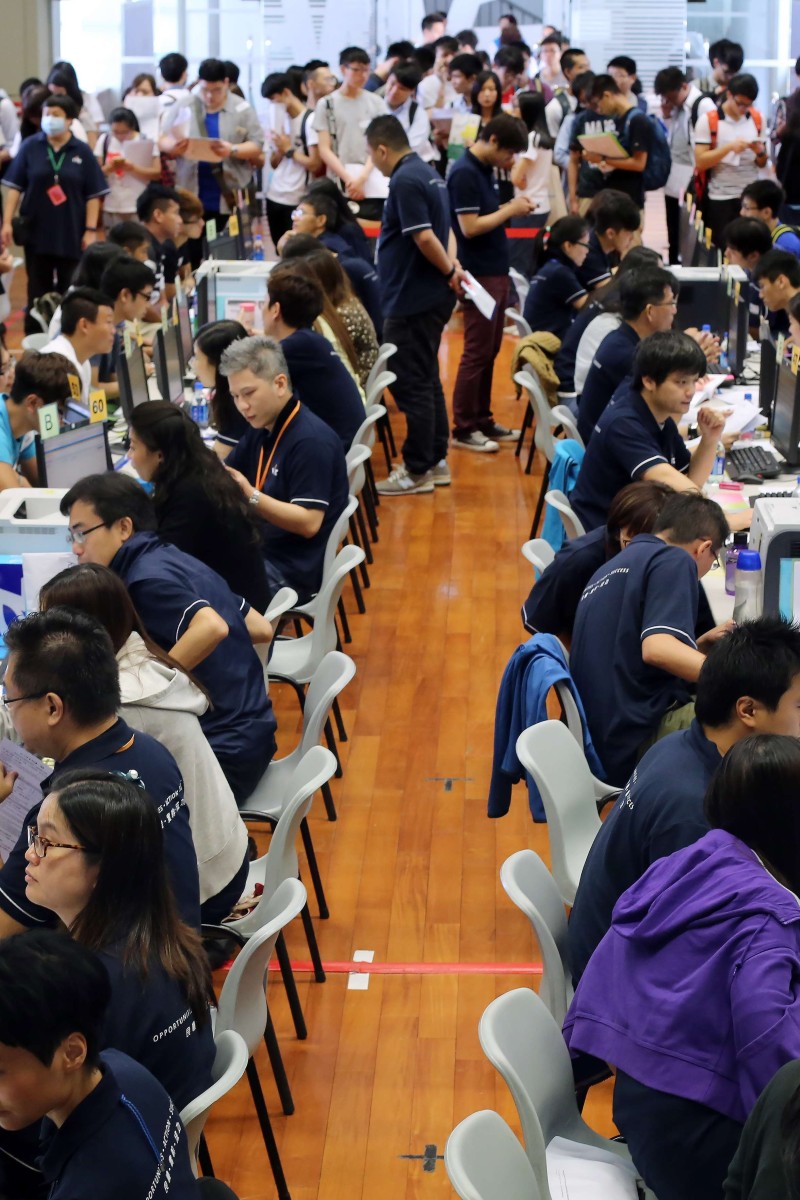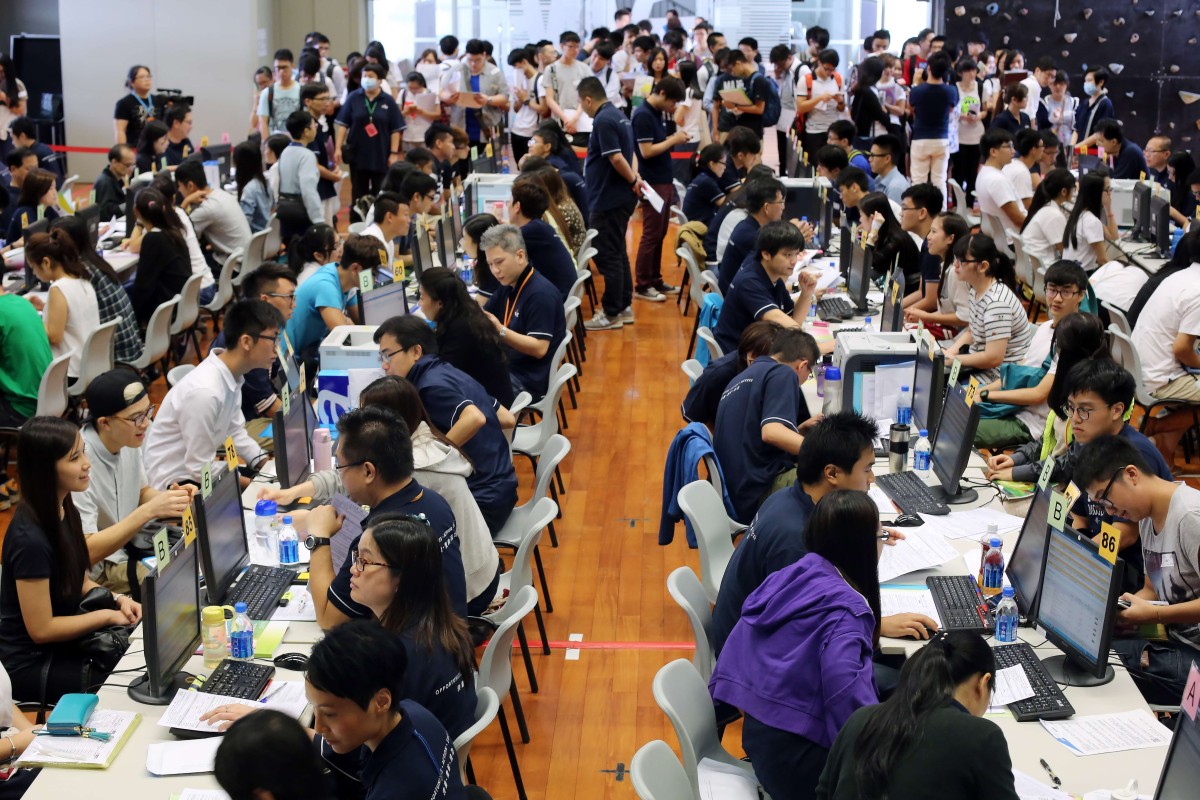
Choosing the right curriculum for your university entrance requirements
Between the DSE, the IB and A-Levels, it’s hard to know which is best. Young Post approached Arch Education, an educational institute based in Hong Kong, to compare the three systems and give some objective advice
 Students at the Haking Wong IVE Central Admission Centre in Cheung Sha Wan.
Students at the Haking Wong IVE Central Admission Centre in Cheung Sha Wan. Many students, and parents, are torn between decisions when it comes to selecting the right curriculum. Students may struggle and drop out of one curriculum, but may get top grades when they switch to another syllabus, gaining university offers in some of the most competitive fields.
It’s not a miracle. It all comes down to the importance of choosing the right curriculum for each student. At times, this factor needs to be considered as early as during school selection.
Curriculum highlights
For formal school curriculums at senior secondary level, there is typically a choice between the local HKDSE, International Baccalaureate Diploma Programme (IB) – taught mostly at international schools – and A-Levels, which are taught at select international and local schools.
HKDSE
The HKDSE requires students to study four compulsory subjects – English, Chinese, maths, liberal studies – and choose two to four electives, from a range of subjects including the sciences, economics, business and administration, history, and English literature. Each subject is rated from 1 to 5**.
IB
IB requires students to study three Higher Level subjects and three Standard Level subjects, while completing the three core subjects of Creativity Activity Service (CAS), Extended Essay and Theory of Knowledge which account for three bonus points. Most schools allow students to choose any subject they are interested in, though certain schools make it a compulsory requirement to do Chinese at a particular level. All students are required to choose one science subject, two languages, one maths, one humanities and one visual arts which could be switched to a second science. Each subject is rated out of 7.
A-Levels
A-Levels require students to study at least three subjects while more able students opt to do more, usually four. Officially there is no limit as to how many subjects a student can pursue. Students can choose any combination of subjects.
Flexibility and limitations
While all curriculums offer a level of flexibility and choice, A-Levels appear to be the most flexible as there is free choice and no compulsory subjects.
Having said that, once students have chosen their subjects, there is not much room for change as it would be difficult to pick up a new subject half-way, whereas IB students might be able to switch their Higher Level and Standard Level subjects if they find the former too challenging.
While IB appears relatively flexible, there is an implicit inflexibility as students are required to select subjects that fulfil the requirement of diversity (e.g. they cannot choose more than two sciences as they must fulfil the other requirements).
While DSE allows for flexibility in choosing electives, the compulsory subjects, in particular the relatively new subject of liberal studies and the very high standard required in Chinese, could hinder students’ ability to meet the minimum requirements demanded by universities in Britain and Hong Kong.
For those applying to universities in Britain, subject combination plays a big role for some courses. For example, to study engineering, DSE students must have M2 (the extended part) and physics, IB students must have physics and maths at Higher Level (Standard is not enough); and A-Level students must have double maths and physics.
Many university courses have similar requirements so knowledge of the university application process is important when choosing your subjects.